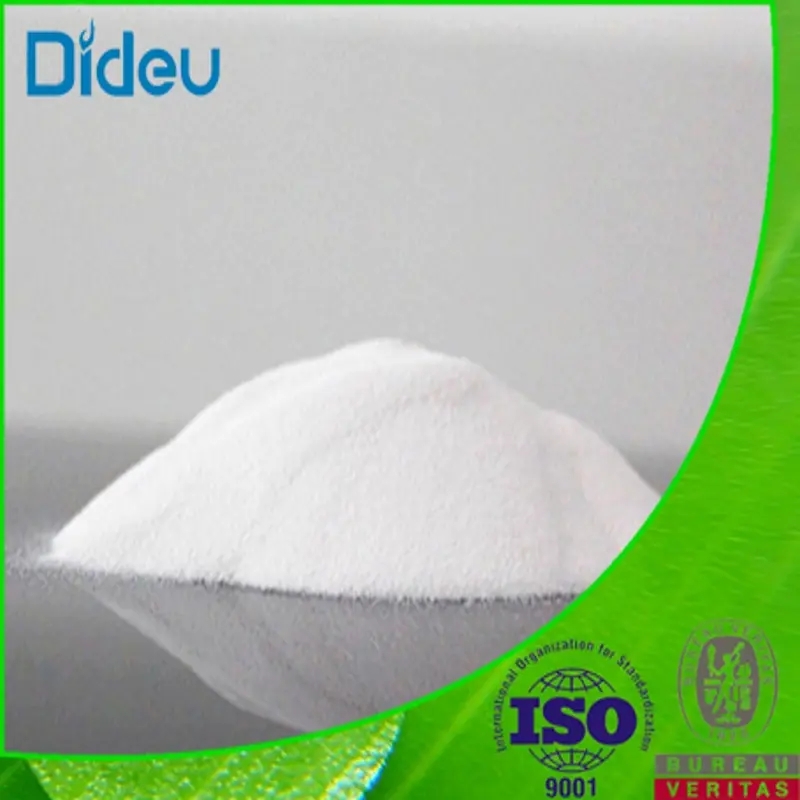Pharmaceutical Intermediates
- • Analgesics (55)
- • Anesthetics (47)
- • Anti-Addiction Agents (8)
- • Antibacterials (94)
- • Anticonvulsants (19)
- • Antidementia Agents (22)
- • Antidepressants (33)
- • Antiemetics (23)
- • Antifungals (22)
- • Antigout Agents (8)
- • Anti-inflammatory Agents (23)
- • Antimigraine Agents (21)
- • Antineoplastics (412)
- • Antiparasitics (10)
- • Antiparkinson Agents (28)
- • Antipsychotics (49)
- • Antispasticity Agents (12)
- • Antivirals (144)
- • Anxiolytics (15)
- • Blood Glucose Regulators (96)
- • Blood Products (61)
- • Cardiovascular Agents (148)
- • CNS Agents (20)
- • Dental and Oral Agents (7)
- • Dermatological Agents (18)
- • Electrolytes (15)
- • Gastrointestinal Agents (58)
- • Genetic/Enzyme Disorder (12)
- • Genitourinary Agents (43)
- • Immunological Agents (31)
- • Metabolic Bone Disease (6)
- • Ophthalmic Agents (31)
- • Respiratory Tract (48)
- • Skeletal Muscle Relaxants (4)
- • Sleep Disorder Agents (23)
- • Oled Material Intermediate (309)
- • Heterocyclic Compound (9725)
- • Bulk Drug Intermediates (16546)
Related News
-
Pfizer China Oncology Division Restructures Amid Executive Changes
2025-03-19 -
Price Surge Alert as Major Suppliers Increase Barium Sulfate Costs by 200 Yuan per Ton
2025-03-20 -
Shell Considers Partnering with the U.S. and Closing European Chemical Assets
2025-03-26 -
Quaker Houghton Acquires Dipsol Chemicals, Strengthening Advanced Solutions Portfolio
2025-03-27 -
AstraZeneca to Invest $2.5 Billion to Establish Global Drug R&D Center in Beijing
2025-03-25 -
Saudi Aramco CEO: Invest in downstream projects in China's energy, chemical and other fields
2025-03-28
Antipsychotics
-
![2-METHYLBUTANE-1,4-DIAMINE buy 2-METHYLBUTANE-1,4-DIAMINE]()
Industrial Grade,Pharma Grade / 99%
-
![2-methyl-1,4-diaminobutane buy 2-methyl-1,4-diaminobutane]()
Industrial Grade / 99.0%
-
![2-METHYLBUTANE-1,4-DIAMINE buy 2-METHYLBUTANE-1,4-DIAMINE]()
-
![2-methyl-1,4-diaminobutane buy 2-methyl-1,4-diaminobutane]()
Request for quotation , get quotes from more suppliers.
-
![4-CHLORO-1-BENZOTHIOPHENE-2-CARBOXYLIC ACID CAS NO 23967-57-9 buy 4-CHLORO-1-BENZOTHIOPHENE-2-CARBOXYLIC ACID CAS NO 23967-57-9]()
Industrial Grade, Feed Grade, Food Grade, Pharma Grade / 99%
$11.11/KG EXW
-
![4-CHLORO-1-BENZOTHIOPHENE-2-CARBOXYLIC ACID buy 4-CHLORO-1-BENZOTHIOPHENE-2-CARBOXYLIC ACID]()
-
![4-CHLORO-1-BENZOTHIOPHENE-2-CARBOXYLIC ACID buy 4-CHLORO-1-BENZOTHIOPHENE-2-CARBOXYLIC ACID]()
Industrial Grade / 99%
-
![4-chloro-1-benzothiophene-2-carboxylate buy 4-chloro-1-benzothiophene-2-carboxylate]()
Request for quotation , get quotes from more suppliers.
Cephalosporin C sodium salt
(51762-04-0)-
![sodium hydrogen [6R-[6alpha,7beta(R*)]]-3-(acetoxymethyl)-7-[(5-amino-5-carboxylato-1-oxopentyl)amino]-8-oxo-5-thia-1-azabicyclo[4.2.0]oct-2-ene-2-carboxylate buy sodium hydrogen [6R-[6alpha,7beta(R*)]]-3-(acetoxymethyl)-7-[(5-amino-5-carboxylato-1-oxopentyl)amino]-8-oxo-5-thia-1-azabicyclo[4.2.0]oct-2-ene-2-carboxylate]()
Industrial Grade / 99%
-
![sodium hydrogen [6R-[6alpha,7beta(R*)]]-3-(acetoxymethyl)-7-[(5-amino-5-carboxylato-1-oxopentyl)amino]-8-oxo-5-thia-1-azabicyclo[4.2.0]oct-2-ene-2-carboxylate buy sodium hydrogen [6R-[6alpha,7beta(R*)]]-3-(acetoxymethyl)-7-[(5-amino-5-carboxylato-1-oxopentyl)amino]-8-oxo-5-thia-1-azabicyclo[4.2.0]oct-2-ene-2-carboxylate]()
-
![sodium hydrogen [6R-[6alpha,7beta(R*)]]-3-(acetoxymethyl)-7-[(5-amino-5-carboxylato-1-oxopentyl)amino]-8-oxo-5-thia-1-azabicyclo[4.2.0]oct-2-ene-2-carboxylate buy sodium hydrogen [6R-[6alpha,7beta(R*)]]-3-(acetoxymethyl)-7-[(5-amino-5-carboxylato-1-oxopentyl)amino]-8-oxo-5-thia-1-azabicyclo[4.2.0]oct-2-ene-2-carboxylate]()
Industrial Grade / 99%
-
![5-Thia-1-azabicyclo[4.2.0]oct-2-ene-2-carboxylic acid, 3-[(acetyloxy)methyl]-7-[[(5R)-5-amino-5-carboxy-1-oxopentyl]amino]-8-oxo-, sodium salt (1:1), (6R,7R)- buy 5-Thia-1-azabicyclo[4.2.0]oct-2-ene-2-carboxylic acid, 3-[(acetyloxy)methyl]-7-[[(5R)-5-amino-5-carboxy-1-oxopentyl]amino]-8-oxo-, sodium salt (1:1), (6R,7R)-]()
Request for quotation , get quotes from more suppliers.
-
![Homarylamine buy Homarylamine]()
- / 95%
-
![Homarylamine buy Homarylamine]()
-
![Homarylamine buy Homarylamine]()
-
![Homarylamine buy Homarylamine]()
Industrial Grade / 99%
Request for quotation , get quotes from more suppliers.
-
![1,3-Dioxolo[4,5-g]isoquinoline,5,6,7,8-tetrahydro-, hydrochloride (1:1) buy 1,3-Dioxolo[4,5-g]isoquinoline,5,6,7,8-tetrahydro-, hydrochloride (1:1)]()
Industrial Grade / 99.0%
-
![1,3-Dioxolo[4,5-g]isoquinoline,5,6,7,8-tetrahydro-, hydrochloride (1:1) buy 1,3-Dioxolo[4,5-g]isoquinoline,5,6,7,8-tetrahydro-, hydrochloride (1:1)]()
-
![1,3-Dioxolo[4,5-g]isoquinoline,5,6,7,8-tetrahydro-, hydrochloride (1:1) buy 1,3-Dioxolo[4,5-g]isoquinoline,5,6,7,8-tetrahydro-, hydrochloride (1:1)]()
-
![1,3-Dioxolo[4,5-g]isoquinoline,5,6,7,8-tetrahydro-, hydrochloride (1:1) buy 1,3-Dioxolo[4,5-g]isoquinoline,5,6,7,8-tetrahydro-, hydrochloride (1:1)]()
Industrial Grade / 99%
Request for quotation , get quotes from more suppliers.
-
![furofenac buy furofenac]()
Industrial Grade / 99%
-
![furofenac buy furofenac]()
-
![furofenac buy furofenac]()
-
![furofenac buy furofenac]()
Industrial Grade / 99%
Request for quotation , get quotes from more suppliers.
-
![3-(4-chlorophenyl)tropane-2-carboxylic acid methyl ester buy 3-(4-chlorophenyl)tropane-2-carboxylic acid methyl ester]()
Industrial Grade / 99.0%
-
![3-(4-chlorophenyl)tropane-2-carboxylic acid methyl ester buy 3-(4-chlorophenyl)tropane-2-carboxylic acid methyl ester]()
-
![3-(4-chlorophenyl)tropane-2-carboxylic acid methyl ester buy 3-(4-chlorophenyl)tropane-2-carboxylic acid methyl ester]()
-
![3-(4-chlorophenyl)tropane-2-carboxylic acid methyl ester buy 3-(4-chlorophenyl)tropane-2-carboxylic acid methyl ester]()
Industrial Grade / 99%
Request for quotation , get quotes from more suppliers.
N-Methyl-2,3-dihydro-1H-inden-2-amine
(24445-44-1)-
![2,3-dihydro-1H-inden-2-yl(methyl)amine(SALTDATA: HCl) CAS NO 24445-44-1 buy 2,3-dihydro-1H-inden-2-yl(methyl)amine(SALTDATA: HCl) CAS NO 24445-44-1]()
Industrial Grade, Feed Grade, Food Grade, Pharma Grade / 99%
$11.11/KG EXW
-
![2,3-dihydro-1H-inden-2-yl(methyl)amine(SALTDATA: HCl) buy 2,3-dihydro-1H-inden-2-yl(methyl)amine(SALTDATA: HCl)]()
-
![2,3-dihydro-1H-inden-2-yl(methyl)amine(SALTDATA: HCl) buy 2,3-dihydro-1H-inden-2-yl(methyl)amine(SALTDATA: HCl)]()
Request for quotation , get quotes from more suppliers.
-
Chemical Grade / 99%
-
![MORPHOLINE-2,5-DIONE buy MORPHOLINE-2,5-DIONE]()
-
![MORPHOLINE-2,5-DIONE buy MORPHOLINE-2,5-DIONE]()
Industrial Grade / 99%
Request for quotation , get quotes from more suppliers.
-
- / 99.00%
-
![1-tert-Butyl 3-methyl 4-oxopiperidine-1,3-dicarboxylate buy 1-tert-Butyl 3-methyl 4-oxopiperidine-1,3-dicarboxylate]()
Industrial Grade / 99%
Request for quotation , get quotes from more suppliers.
Source Antipsychotics Raw Materials by Region
More Information
Antipsychotic medications are a group of medications that are typically used to control and treat signs and symptoms of psychiatric problems such as schizophrenia and bipolar condition. These medications modulate brain neurotransmitter pathways, primarily focusing on corresponding dopamine and serotonin receptors to help in alleviating symptoms such as hallucinations, delusions, and unbalance of mood.
There are two classes of antipsychotic agents, typical (first generation) and atypical (second generation). Typical antipsychotics (e.g., chlorpromazine, haloperidol) primarily act as dopamine antagonists, reducing psychotic symptoms by blocking dopamine receptors. In addition to targeting dopamine receptors, atypical antipsychotics (e.g., quetiapine, risperidone) also affect serotonin receptors, which may contribute to their greater efficacy in managing a broader range of symptoms with improved safety profiles.
Therapeutic applications include:
● Management of schizophrenia
● Treatment of bipolar disorder
● Adjunct therapy for major depressive disorder
● Control of severe agitation or anxiety












![sodium hydrogen [6R-[6alpha,7beta(R*)]]-3-(acetoxymethyl)-7-[(5-amino-5-carboxylato-1-oxopentyl)amino]-8-oxo-5-thia-1-azabicyclo[4.2.0]oct-2-ene-2-carboxylate buy sodium hydrogen [6R-[6alpha,7beta(R*)]]-3-(acetoxymethyl)-7-[(5-amino-5-carboxylato-1-oxopentyl)amino]-8-oxo-5-thia-1-azabicyclo[4.2.0]oct-2-ene-2-carboxylate](https://static-www.echemi.com/static_v3/images/common/defaultGoodsPicSize200_vb7108c.jpg)
![5-Thia-1-azabicyclo[4.2.0]oct-2-ene-2-carboxylic acid, 3-[(acetyloxy)methyl]-7-[[(5R)-5-amino-5-carboxy-1-oxopentyl]amino]-8-oxo-, sodium salt (1:1), (6R,7R)- buy 5-Thia-1-azabicyclo[4.2.0]oct-2-ene-2-carboxylic acid, 3-[(acetyloxy)methyl]-7-[[(5R)-5-amino-5-carboxy-1-oxopentyl]amino]-8-oxo-, sodium salt (1:1), (6R,7R)-](https://file.echemi.com/fileManage/upload/category/be4e9812-8ef5-11ec-89e5-fa163ed06441.png)


![1,3-Dioxolo[4,5-g]isoquinoline,5,6,7,8-tetrahydro-, hydrochloride (1:1) buy 1,3-Dioxolo[4,5-g]isoquinoline,5,6,7,8-tetrahydro-, hydrochloride (1:1)](https://file.echemi.com/fileManage/upload/canonicalSmiles/20220812/105a330286224603a1094163eeda2a43.png)





